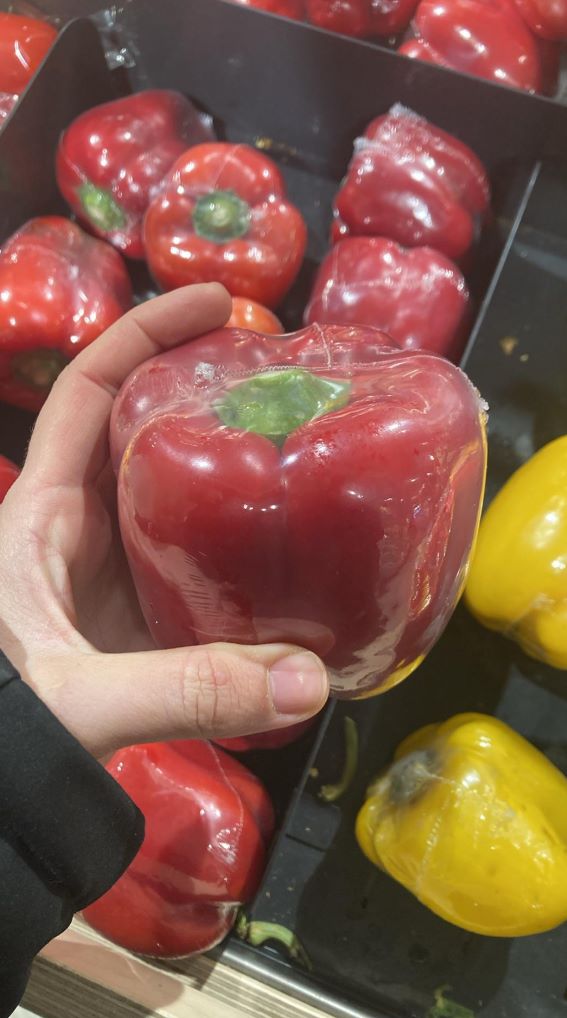The trend of individually wrapping fruits and vegetables in plastic seems to be increasingly common as stores seek to preserve the freshness of produce, extend its shelf life, and prevent damage during transport. This practice may result in fewer lost profits and rotten vegetables, but the excessive plastic it generates isn't great for the environment.
When one shopper came across a bell pepper individually packaged in plastic, it sparked an interesting debate on business waste in r/mildlyinfuriating.
What's happening?
The Reddit user shared a photo of a red bell pepper wrapped tightly in plastic, with other plastic-wrapped red and yellow bell peppers photobombing in the background.

"Vegetables stupidly wrapped in plastic," the original poster wrote.
"This should be illegal," one user said.
"Taking something that was just fine as it was and completely overcomplicating it is the central tenet of human civilization," another quipped.
However, one Redditor defended the practice, writing, "It has been calculated that vegetables packed in this way have a smaller environmental impact than unwrapped ones. This is because the vegetables last longer, which results in reduced wastage versus the environmental impact of the plastic."
Why is plastic waste concerning?
According to the United Nations, plastic waste can take between 20 and 500 years to decompose. Meanwhile, it breaks down into smaller particles called microplastics, which researchers have linked to many human health problems, such as obesity and reproductive issues.
According to the U.N. Environment Programme, the world produces over 440 million tons of plastic waste each year. If historic growth trends continue, this will reach a whopping 1,200 million tons by 2050.
🗣️ Which of these factors is your biggest obstacle to purchasing an EV?
🔘 Cost concerns 💸
🔘 Range concerns 🪫
🔘 Performance concerns 😓
🔘 Already switched 😎
🗳️ Click your choice to see results and speak your mind
Around 36% of these plastics are produced for single-use products like food and beverage packaging, and about 85% of them end up in landfills or as mismanaged waste. When plastic breaks down in oceans or other natural areas, it leaches toxic chemicals into the environment, harming ecosystems, wildlife, and communities.
Furthermore, plastics are made primarily from polluting fuels such as oil and coal, which release heat-trapping gases that drive rising temperatures, extreme weather, and other markers of climate instability.
Are companies doing anything about this?
The OP didn't mention where they spotted the egregiously packaged pepper, so it's unknown what policies the company in question currently has to address excessive plastic waste. However, other grocery chains have committed to cleaning up their act and cutting back on plastic.
For example, Walmart has agreed to replace its plastic mailing envelopes with recyclable paper by the end of the 2024 fiscal year, and Trader Joe's has removed over 12 million pounds of plastic packaging from its products.
What's being done about plastic waste more broadly?
While grocers reduce their plastic usage, some companies and scientists are working to repurpose plastic that otherwise would rot in landfills. Some researchers have developed a way to turn plastic trash into food (though they're still working out the kinks). One company has debuted sustainable plastic water bottles, while another launched biodegradable plastic made of captured carbon.
If you want to be less dependent on plastic, you could swap plastic food containers for silicone ones or swap single-use coffee products for a nice cup of old-fashioned brewed coffee at home.
Join our free newsletter for good news and useful tips, and don't miss this cool list of easy ways to help yourself while helping the planet.









